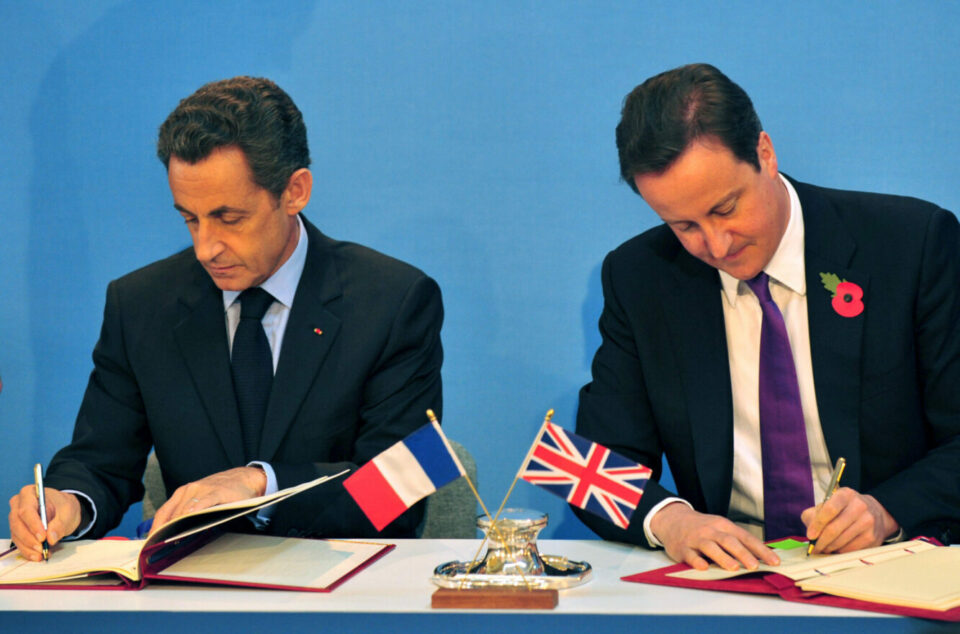What challenges do the UK and France face in achieving effective nuclear collaboration?
“`html
Can the UK and France Join Forces for a New Era in Nuclear Strategy
Understanding the Current Nuclear Landscape
The geopolitical landscape is changing, and the need for robust nuclear strategies has never been more significant. UK and France are two of the few countries with advanced nuclear arsenals that also share a deep historic bond. In light of evolving international threats, their collaboration could usher in a new era of nuclear strategy.
Historical Context of UK and France Nuclear Relations
Since the establishment of their respective nuclear programs in the mid-20th century, the UK and France have maintained a complex relationship characterized by both collaboration and rivalry. Key milestones include:
- 1960: France conducts its first nuclear test, becoming a significant player on the world stage.
- 2000: The Lancaster House Treaties highlight a commitment to forces-could-the-uk-and-france-lead-the-charge-in-the-third-nuclear-age/” title=”Uniting Forces: Could the UK and France Lead the Charge in the Third Nuclear Age”>defense cooperation between the two nations.
- 2010: Joint military exercises emphasize interoperability in defense strategies.
Potential Collaborative Ventures in Nuclear Strategy
The notion of a united front in nuclear strategy between the UK and France is not only feasible but could yield various advantages:
Joint Nuclear Research and Development
Cooperation in R&D can lead to:
- Cost-sharing for modernization of nuclear arsenals.
- Advanced technology sharing, particularly in missile defense systems.
Interoperability of Nuclear Forces
Combining forces can ensure:
- Greater operational readiness through joint training exercises.
- Seamless collaboration in the event of mutual threats.
Strategic Policy Synchronization
The formulation of compatible nuclear policies would aid in:
- Establishing a united front in international negotiations.
- Improving threat deterrence by demonstrating solidarity.
Benefits of a UK-France Collaborative Nuclear Strategy
Engaging in a collaborative nuclear strategy offers numerous benefits:
Enhanced Security Posture
A united nuclear front significantly enhances the security posture of both nations. This collaboration will deter threats, particularly in an era where global instability is rising.
Reduction of Costs
By pooling resources, both nations can reduce the economic burden associated with maintaining and modernizing their nuclear arsenals:
- Joint projects can lead to savings on research, development, and deployment.
- Shared operational costs during joint exercises will prove beneficial.
Strengthened Alliances
This partnership could solidify alliances with other nuclear and non-nuclear states, leading to a more stable global order.
Practical Tips for Achieving Effective Collaboration
For the UK and France to successfully collaborate, the following steps can be considered:
1. Establish Clear Communication Channels
Regular diplomatic meetings and military exchanges will foster transparent communication regarding nuclear policies and strategies.
2. Joint Strategic Exercises
Engaging in joint military exercises focused on nuclear scenarios will build trust and enhance interoperability between forces.
3. Developing Common Frameworks
Working together to develop joint doctrines for nuclear engagement will provide clarity and unity in responses to threats.
Challenges and Considerations
While collaboration presents numerous benefits, there are also challenges that must be addressed:
Political Divergence
Differences in political leadership, domestic agendas, and public opinion can impact collaboration efforts.
Global Non-Proliferation Obligations
Both nations must navigate their commitments to non-proliferation while advancing their nuclear capabilities.
Strengthening Nuclear Partnerships in Europe
France and the United Kingdom, as Europe’s exclusive nuclear powers, share several commonalities. Both nations have long contributed to NATO’s nuclear strategy since the Ottawa Communiqué of 1974. While France has opted out of joining NATO’s Nuclear Planning Group, the ongoing dialogue and technical exchanges on nuclear matters demonstrate a robust partnership. Despite fluctuating political climates, their collaboration in nuclear initiatives remains steady.
As we transition into a new phase known as the “third” nuclear age, both France and the UK have significant opportunities for enhancing their cooperation. This can be achieved by advancing research in cutting-edge technologies, addressing emerging threats in the Indo-Pacific region, and developing better operational compatibility. In an increasingly competitive global landscape among nuclear states, it is crucial for Anglo-French collaboration to maintain their strategic stature while amplifying Europe’s influence internationally.
Evolution of Nuclear Cooperation
Historically speaking, Britain and France’s relationship regarding nuclear capabilities has seen its ups and downs. Their divergent paths emerged during the late ’50s and ’60s when France chose to chart an independent course under Charles de Gaulle while Britain cemented its ties with the United States through agreements like the Mutual Defence Agreement signed in 1958.
However, during this period of schism regarding Atlantic alliances—the implications from events such as Suez Crisis deemed vital—the two countries still found avenues for defense collaboration like aerospace projects exemplified by Concorde’s inception shortly after France’s departure from NATO’s integrated military command.
In ensuing decades—particularly during the ’70s—the dynamics shifted again as bilateral discussions resumed between Britain and French entities with Washington even granting technological support for ballistic missile advancements within French operations. The notable Joint Nuclear Commission formed in 1992 served to elucidate each country’s respective policies relating to their nukes while marking a peak era of mutual interests evident through formal acknowledgments such as those enshrined within Chequers Declaration issued three years later.
The Lancaster House Treaty established in 2010 set forth an expansive framework for cooperation across both conventional forces along with strategic areas involving atomic capability management—this was fortified two years after via additional agreements aimed at ensuring sustained security standards amidst budgetary constraints that loomed over both nations’ military landscapes at that time.
Enhancing Franco-British Unity
Looking ahead into this evolving landscape characterized by new challenges faced globally; there are practical yet straightforward areas ripe for improvement within UK-French relations namely centered around collaborative research efforts focusing on advanced tech innovation alongside regional strategies directing security protocols going forward.


